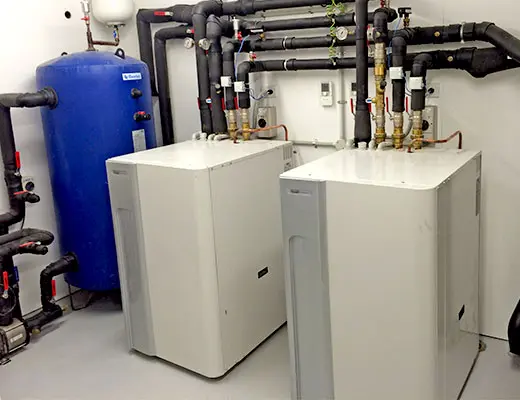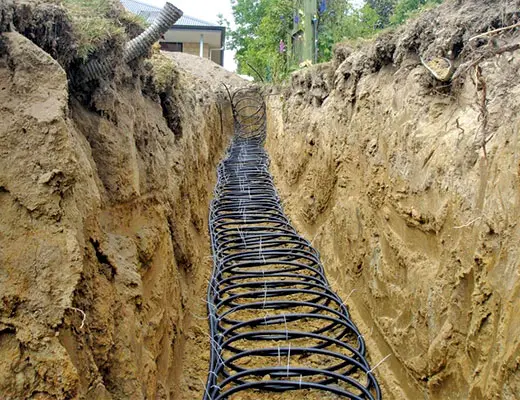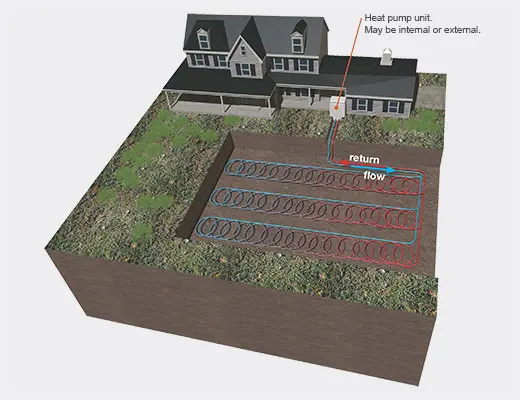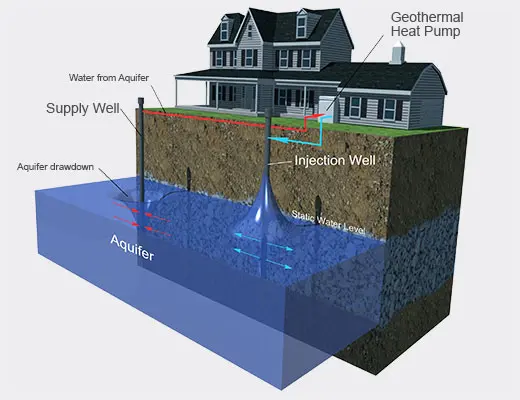All you need to know about cooling
We need heating around 200 days of the year but during the warmer summer months, a little cooling is needed to take the edge off those days.
A geothermal heat pump or ground source heat pump (GSHP) is a heat source for central heating and/or cooling systems that transfers heat to or from the ground.
Ground source heat pumps use the earth, or a body of water, as a heat source in winter and as a heat sink during summer. This design takes advantage of the moderate temperatures in the ground (all over the world) to boost efficiency and reduce the operational costs of heating and cooling systems. They are the best form of all renewable energies as the energy from the ground is available 24/7. Geothermal ground sourced heat pumps are more efficient than air source heat pumps and have lower running costs. They do have a higher capital cost due to the ground heat exchanger that the heat pump is connected to. But, they are quieter, inside (less visual impact) and with less moving parts and maintenance.


Central Heating New Zealand were early pioneers of this technology in our country. Since 2007, we have been involved in more than 150 geothermal systems for residential and commercial projects. We continue to advocate these systems for discerning clients who value energy efficiency and the planet.
Horizontal ground exchangers are the most common for projects with plenty of space outside. Large trenches or pits are dug for pipework at approx. two metres deep. Vertical bores are used where space is more limited. Well water is another popular method used, especially in Canterbury and Southland. This can be seen in large projects in Christchurch City after the earthquakes that used aquifer water to heat and cool the buildings.
For further information please see our general or detailed brochures, or contact us to find out if a geothermal ground-source heating system is right for you.

Slinky type ground source heating

Well type ground source heating